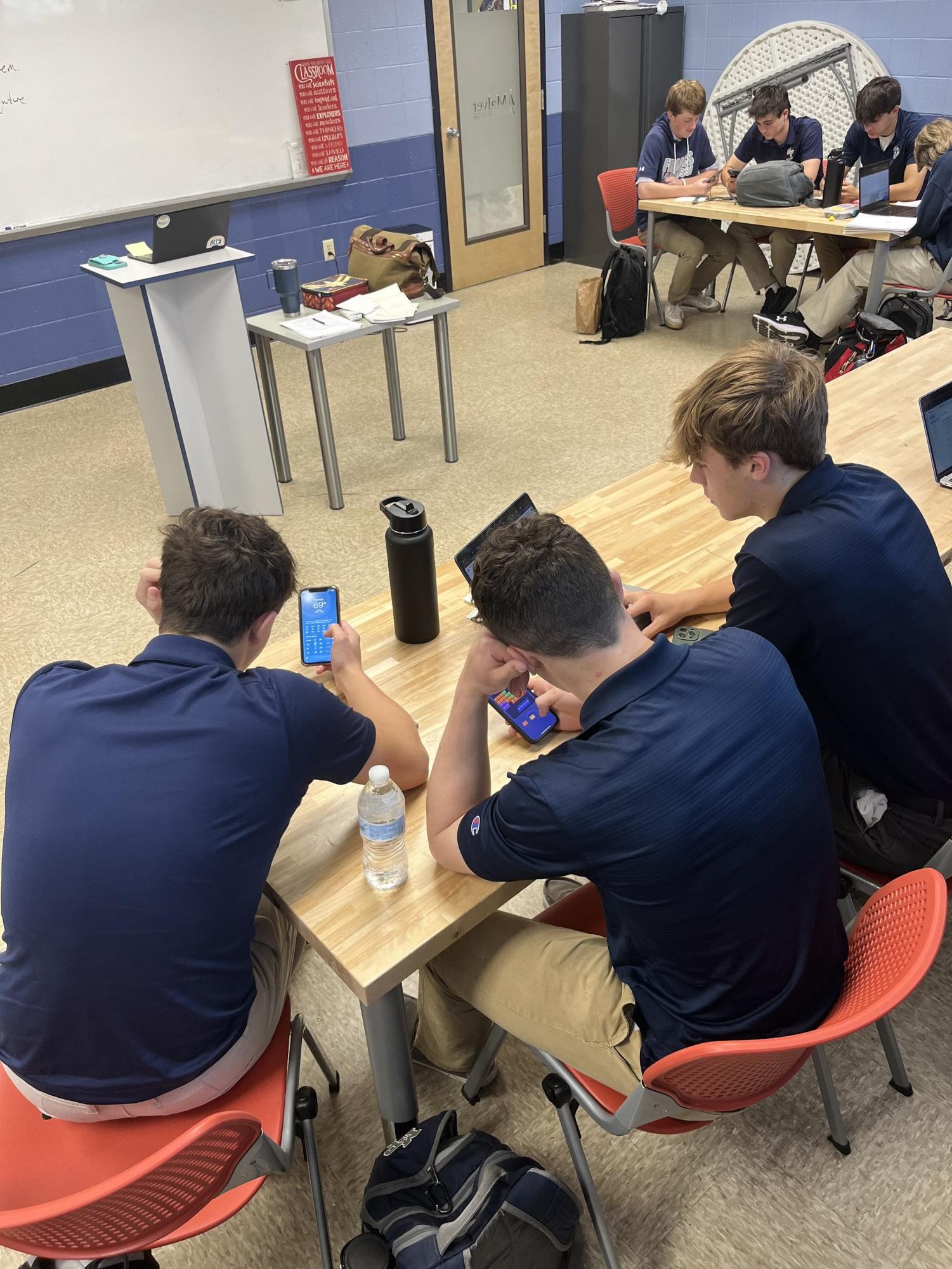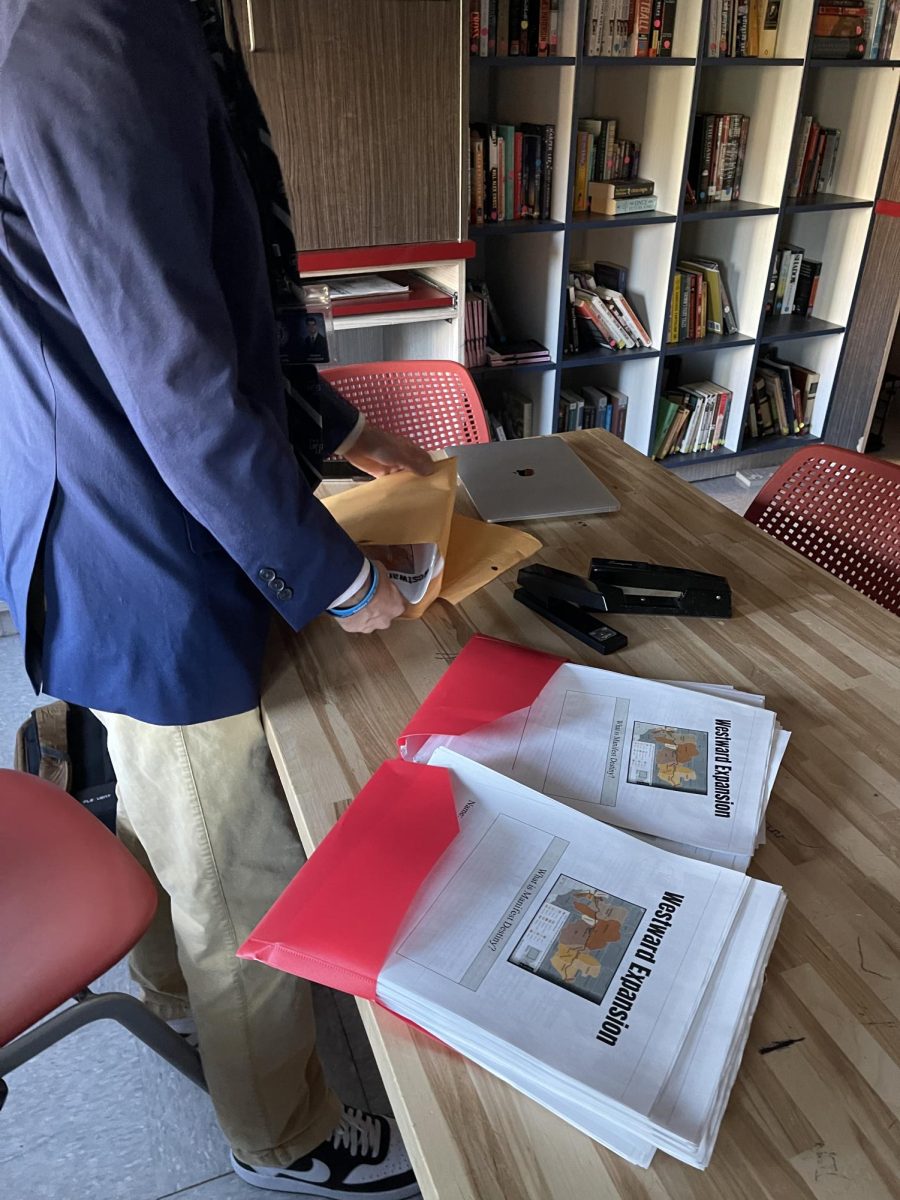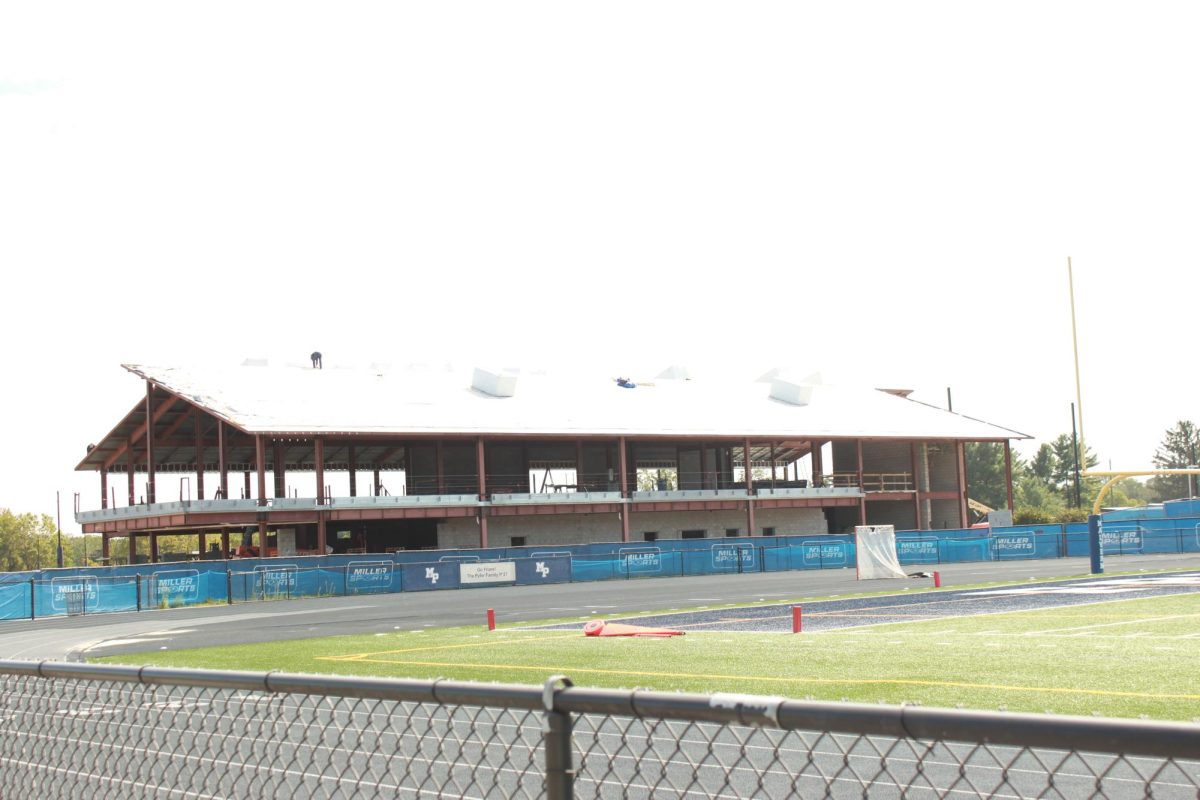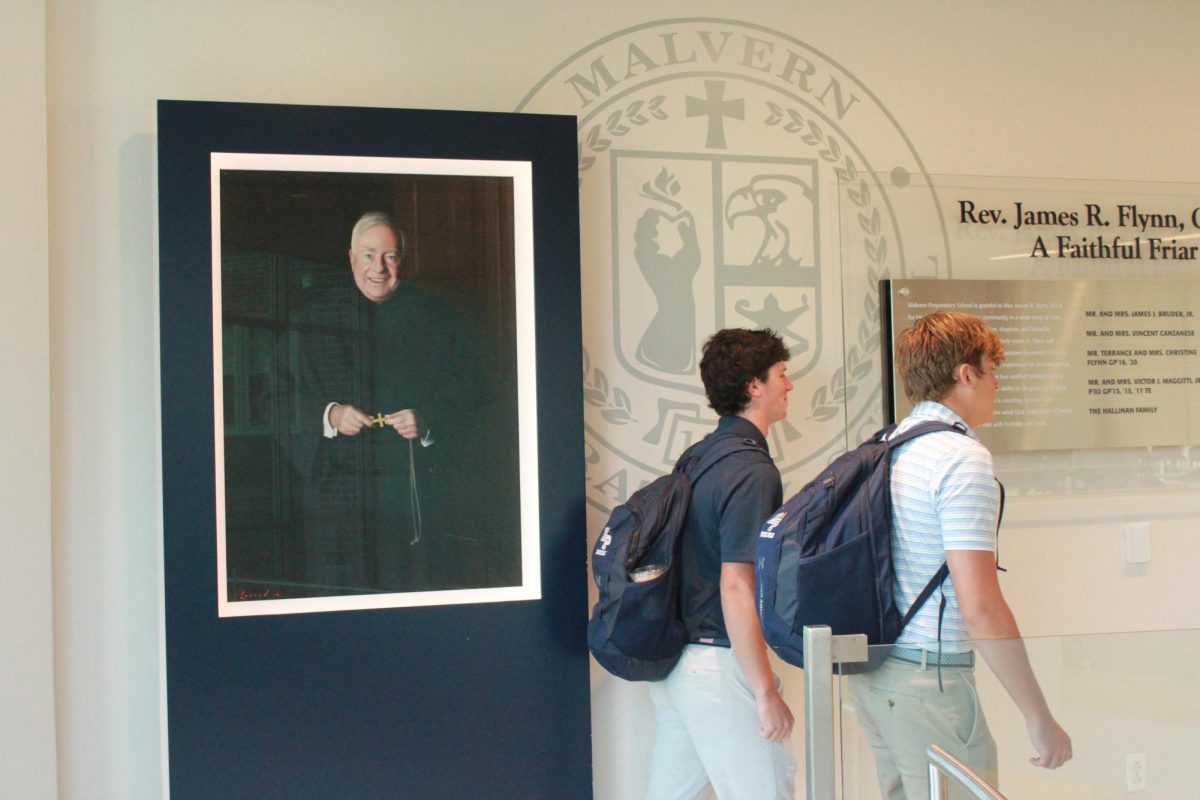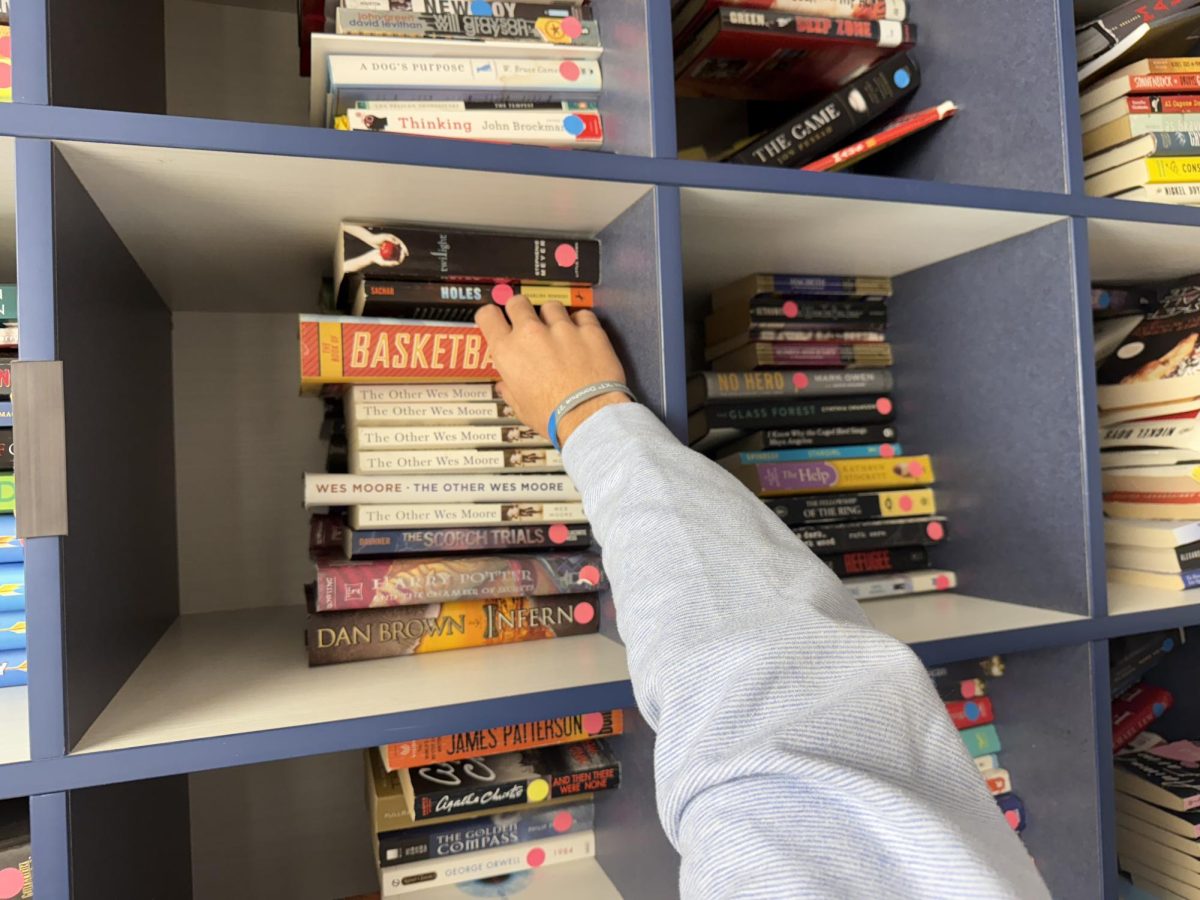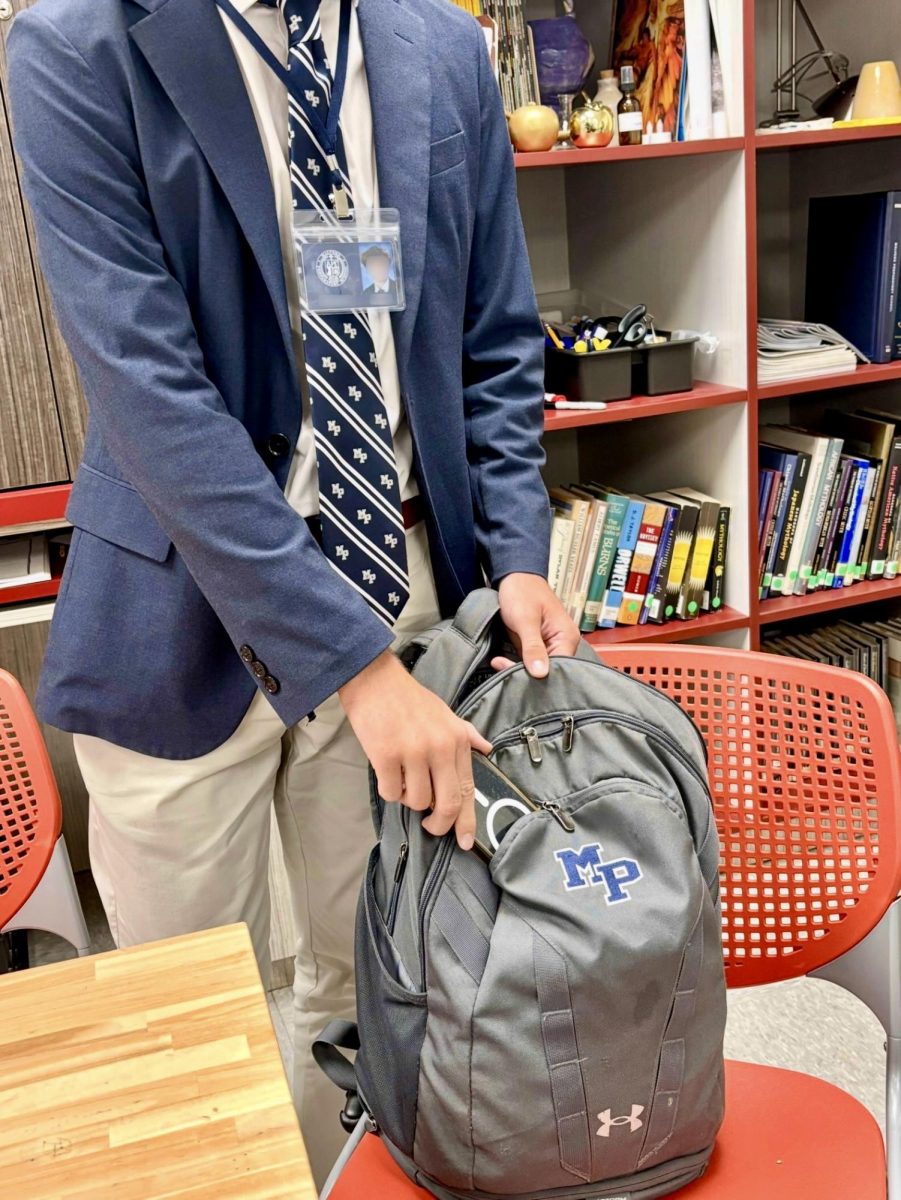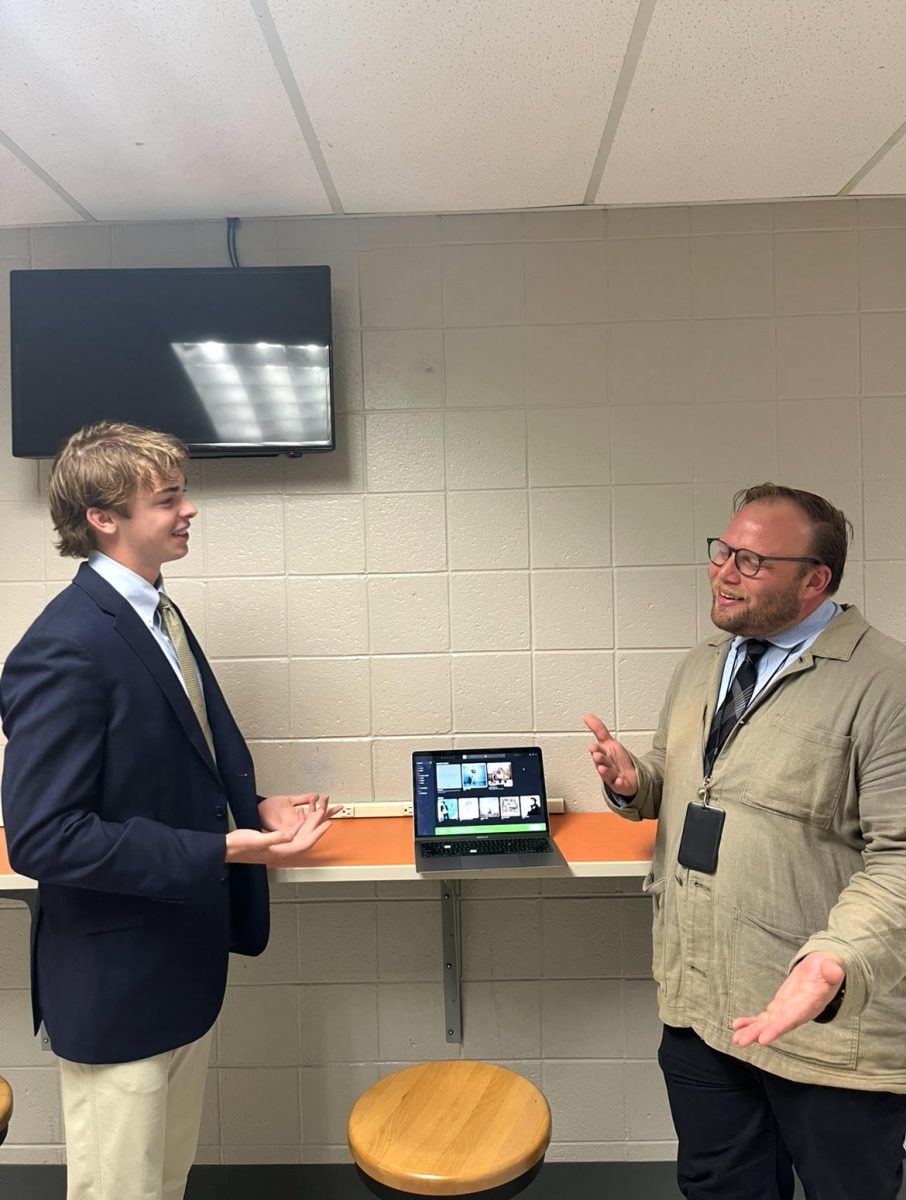On April 12, 2024, Malvern Prep had a Professional Development Day, where faculty and staff had team meetings, professional training, and public presentations. Included as a guest speaker, Dr. Jared Cooney Horvath presented on numerous topics, including learning in the brain, multitasking, and the effects of technology on adult and adolescent learners. Dr. Horvath is an award-winning neuroscientist, bestselling author, and keynote speaker with expertise in human learning, brain development, and memory.
Ms. Shay Quigley, a Learning and Development Specialist at Malvern, oversees community days of learning by providing an educational theme for each year. Quigley detailed how the day was organized and contributed to the yearly goal.
“This year, the Growth and Development Department made the curriculum’s theme neurodiversity. [For this Professional Development Day,] we scheduled Dr. Horvath because he’s a neuroscientist with expertise in the science of learning and technology… On previous Professional Development Days, our learning specialists spoke because they are the community experts.”
Dr. Horvath began his presentation by describing the science behind learning. He emphasized the learning process in baby steps and ultimately noted the importance of providing structure to students’ lives. Especially at Malvern, a school where “boys come to learn, and young men leave to serve,” transforming young men must be guided by rules and processes that help them succeed.
“[As educators and mentors], we’ve lost the concept that our job is to raise [students] into adulthood and order. To do that, we need structure. [Structures and rules] are the best mechanisms we have to make sure kids are going down a healthy path,” Dr. Horvath said.
For Dr. Horvath, growth into maturity cannot be expected; educators and leaders must set the scene with rules, expectations, and consequences. Later, Dr. Horvath shared his scientifically informed view that technology like phones and excessive computer usage are a detriment in school environments. The danger boils down to multitasking, which becomes easier and easier with today’s technology.
“Multitasking is not a skill issue but rather a software one. Our brain has an attention filter that determines what is relevant and goes in, but there is only one. That means that you cannot do two things simultaneously,” Dr. Horvath said.
Backing his statement, he shared statistics that show the harm of multitasking in the classroom and how it’s not actually completing or focusing on multiple tasks, but our brains switching focus, poorly.
“The swapping of the attention filter takes your brain about 0.2 seconds, in which you process absolutely nothing… [Multitasking] is the single worst thing human beings can do for learning and memory. When we do it, we [learn] slower and experience tanks in accuracy and memory,” Dr. Horvath said.
Dr. Horvath isn’t the only voice opposing technology usage in learning; in his presentation to Malvern, he cited four different experts and research organizations with common beliefs against technology. In one of his slides, he included, “students who use computers very frequently at school do a lot worse in most learning outcomes,” citing the Organization of Economic Co-Operation and Development.
Tying into multitasking, tech is especially problematic because of the distractions it provides to students in learning settings. Students today have to work through rigorous class work and expectations, all while social media apps and games compete for their attention. Dr. Horvath included the tangible effect the distractions have on students.
“Kids have spent thousands of hours every year training themselves to use this machine in the one way that we know is absolutely horrible for learning: multitasking. This is why, when students sit down to do homework at a computer on average, they will make it six minutes before they start multitasking,” Dr. Horvath said.
Mrs. Korin Folan, Head of Student Leadership, shared her thoughts on technology inside and outside the classroom and whether she believes the brotherhood is affected.
“Community and connection are really important to the Malvern community, but we are still seeing, Malvern and beyond, students unable to interact. It’s concerning to me as a parent and as an educator. [Malvern Prep Administration], this past year, decided not to have phones in middle school, and it’s been pretty great. We’ve seen students interacting much more with each other,” Folan said.
For most of the schools around the globe, the solution is simple: a strict ban. Dr. Horvath emphasized that bans are most effective when exercised completely. To the dismay of many Malvern students, this may mean that phones would be unavailable outside the classroom during free times like lunch or between classes.
“Over the past five years, I know of about 3,000 schools across Australia, Asia, and Europe that have banned cell phones. Of those 3,000, zero have returned to having phones… The students in the schools like [their school environment] better [than before] after they get over the hump. Parents like it better. Teachers like it better,” Dr. Horvath said.
Teachers definitely do like it better. For some students and teachers at Malvern, a school without phones isn’t new. Mr. Andrew Burke, an Upper School History teacher, shook things up with a new initiative to get his Honors United States History class off their phones.
“[This year,] we did a social experiment where I challenged [sophomore] students to give up their cell phones for a week. Since humans respond to incentives, the students were awarded extra credit points for successfully going without their phone for the entire week from 8:40 AM to 2:50 PM,” Burke said. “I do not see any downside to banning cell phones. Many schools in Europe have already done this with positive results, and the middle schoolers at Malvern have already adopted a cell phone ban.”
In another department, Mrs. Kimberly Wright, an Upper School Spanish teacher, restricts cell phones and general technology in her classroom.
“[In a Spanish setting,] the real impetus for restricting technology is the academic risk of Google Translate… and now with the rise of [artificial intelligence,] teachers in other subjects are starting to see the same complications of technology when it’s misused… In my classroom, phones are always face down on the desk, and computers are in the bag, except for during the end of class when we play review games,” Wright said.
Wright explained how Dr. Horvath’s presentation shed new light on technology in the classroom. She shared that while Dr. Horvath’s presentation mainly cemented her long-held beliefs about technology, it was useful to hear a different scientific point of view. Though her policy will not change in the future, she foresees other teachers making changes to their policies.
“One of the things that [Dr. Horvath] mentioned was that reading a printed copy promotes more learning than reading something on a screen. I knew that that was what worked for me, but I didn’t know that there was actually science backing it up,” Wright said.
Despite the fact that phone policies and initiatives are being put in place by individual teachers, it is undeniable that Malvern is addicted to technology, whether it be phones or computers. Mr. Tom Pannulla, Head of Academics, and Folan detailed their plans for next year with one goal in mind: an appropriate use of technology.
“‘Appropriately’ is the keyword. Mostly anything, from a mental health perspective, is okay when used in moderation. When we start having an excess of [technology], then it becomes an issue. Moderation becomes a question of how we use what we have in a way that we know benefits our students, teachers, and school community,” Folan said.
Pannulla emphasized that future choices regarding policies and rules are based on moderation and feedback. In other words, much more goes into their decisions than just the cons of technology.
“I think we do need to continue to consider the technologies that are available to us and how we are using them. I think it is silly to say that we are just not going to do anything because it might be bad in some ways. We now know [some of the faults], but the focus is on doing things appropriately,” Pannulla said.
Ultimately, Pannulla and Folan included the verdict for next year, though it might be subject to change.
“[Official policy] won’t happen for next year, but it is something that we are looking at. If we know the impact of phone use is negatively affecting students, then that’s concerning to us. One thing we are hoping to do next year is to have students turn in phones for each class to phone cubbies… We’ll spend a lot of next year starting to move towards a decision by gathering more information and data before putting together a formal policy,” Folan said.
As the year ends, Malvern students may be devastated or delighted to hear the news of cubbies and potential further policy changes to technology in the coming year.
“I wouldn’t call it a huge policy change, so to speak. It’s a nice way for us to start to lay some groundwork and understand some local data, which is really important for us,” Pannulla said.
As a closing personal note, I have participated in numerous phone and technology initiatives during my three years at Malvern. Last year, I gave up my phone during school hours (8:35-2:50) for Lent as a class challenge, and this year, during the writing of this article, I went one week without phone usage during school. Speaking from experience, giving up my phone for just this amount of time was challenging and humbling. I truly believe that technology is an addiction, and in school, it brings forth both positive and negative effects. When giving it up, I experienced much greater focus in my classes without the temptation to go on social media. Still, I also realized how much I craved my phone during times with friends outside of the classroom, especially at lunch or at the end of the day. Perhaps one of the biggest reasons that I am personally for a ban on technology is that overcoming the addiction would become much easier if others did it, too. Also included in a study I discussed with Ms. Quigley, the environment and surrounding people are key when giving up social media or technology in general, as it becomes easier and less addictive with supporters. To me, making the decision to make Malvern phone-free is the first step to ensuring an ideal environment for academics, social life, and personal growth. Regarding the future of tech at Malvern, I hope that Malvern makes a firm decision for policy next year and backs it up with consequences. If Malvern makes a true no-phone policy, I’m all for it – it’ll just mean more real-life memories for my final year.


